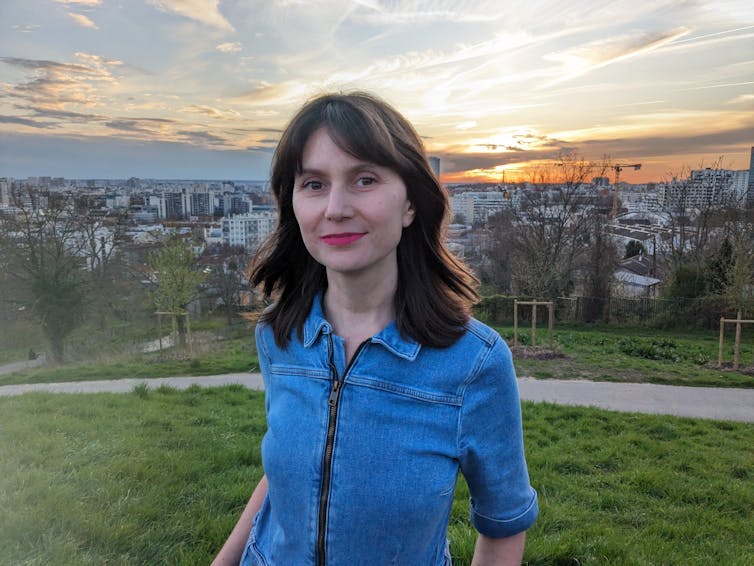Land of a ‘fair go’ or Fortress Australia? A globetrotting journalist questions Australia’s myths – and nationality itself
- Written by Charlotte Chalklen, Course Coordinator, Media Law and Ethics, University of South Australia

Desire paths – trails formed by people or animals taking the most logical and convenient route, rather than the approved pathways set out by bitumen, gravel and signage – are having a moment.
Tens of thousands have contributed snaps of them to Reddit threads. Urban planners study them. My own 13-year-old, factoid-obsessed son recently brought up the term while we were walking the dog. Equally mundane and profound, these foot-traffic-forged paths have become modern-day symbols of human agency and the triumph of common sense over authority.
Review: Desire Paths – Megan Clements (Ultimo)
Paris-based journalist and former Melburnian Megan Clement adds depth to the term with her memoir, Desire Paths. In it, she reflects on her own life path, in her work and as a teenage migrant to Australia from the United Kingdom.
She has crisscrossed the globe, most recently from France to Australia and back again many times, during COVID-19 lockdowns and her father’s terminal illness. London, Stoke-on-Trent, Harare and Mexico have all been part of the mix, too.
Alternating between the personal and geopolitical, Clement contemplates paths taken by choice, by chance and for lack of other options. Why do some get to choose desire paths, while those most in need, like asylum seekers, are imprisoned for following them?
The lucky country?
Desire Paths begins at that unsettling moment in early 2020, when the pandemic was twisting billions of life trajectories in unwanted directions, as the world’s borders closed.
It centres on Clement’s return to Melbourne’s inner north-east to be with her father in his last weeks, after his chemo treatment has stopped working. Metres from her teenage family home, looking down from an Airbnb window at the desire paths in East Brunswick’s Fleming Park, Clement reflects on the path that brought her to this point.
Clement was in Mexico on a journalism fellowship when COVID-19 hit. She considers race and the “false typologies of the migrant”: the different receptions afforded to millions of desperate people trying to reach the United States and Europe, versus her family’s relatively easy arrival to settle in Australia from the UK in 2000. She reflects on the myths Australia tells itself:
Australia the lucky country, the safe country, the sane country, the liveable country with the spirit of the ‘fair go’. What underpins these assumptions – all of them wrong, none of them applicable to its First Nations People, nor its poor, its sick, its racial or religious minorities, its elderly – is an idea that is much more dangerous and more real. Australia: the fortress.
Clement tests negative, and is allowed to spend time with her parents, helping-without-hugging. As lockdowns sweep the globe, with her partner, home and dog back in Paris, she is faced with a choix cornélien – an impossible choice. Return to France while she can and risk not being able to come back, or stay in fortress Australia, unable to get out.





